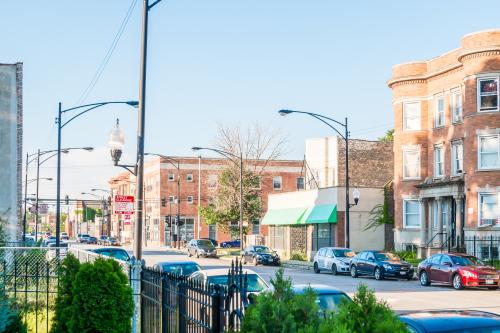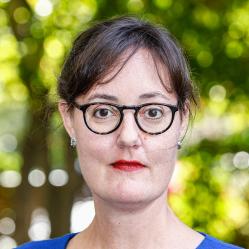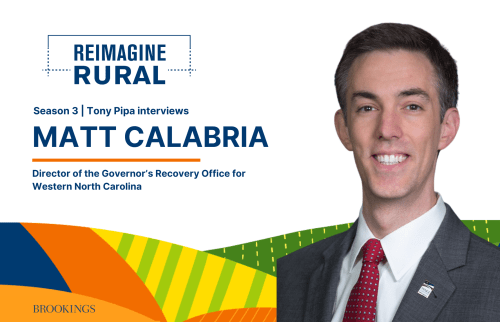Virtually every organization, from the Girl Scouts to Google to the United Nations High Commission on Human Rights, has a mission statement that describes why the organization exists and what its primary goals are. Although such statements don’t reference all the organization’s activities, the chosen words signal priorities and intent—both to internal staff and to outside clients or partners. Changing a mission statement is both symbolically and practically important, as activities or programs that can’t be clearly linked to the mission statement are more likely to be cut when budgets are tight.
So the news that U.S. Housing and Urban Development Secretary Ben Carson plans to change HUD’s mission statement is yet another worrying sign that the Trump administration is backing away from long-term goals of urban policy. In particular, the proposed new statement removes references to “sustainable, inclusive communities” and consumer protection, shown in the text below.
Current mission statement:
HUD’s mission is to create strong, sustainable, inclusive communities and quality affordable homes for all. HUD is working to strengthen the housing market to bolster the economy and protect consumers; meet the need for quality affordable rental homes; utilize housing as a platform for improving quality of life; build inclusive and sustainable communities free from discrimination, and transform the way HUD does business.
Proposed new statement:
HUD’s mission is to ensure Americans have access to fair, affordable housing and opportunities to achieve self-sufficiency, thereby strengthening our communities and nation.
Mission accomplished, or just abandoned?
Fifty years ago, the 1968 Fair Housing Act prohibited landlords, mortgage lenders, and real estate agents from discriminating against people based on race, ethnicity, religion, gender, family status, or disability. As the federal agency directly responsible for housing and urban policy, why would HUD then choose to remove language about combatting discrimination from its stated raison d’être?
A naïve observer might think that HUD’s language change is because, 50 years after passing the Fair Housing Act and 150 years after abolishing slavery, U.S. housing and mortgage markets no longer exhibit discrimination. And research does show that racial segregation has declined substantially since racially restrictive covenants and other directly discriminatory practices became illegal. However, there are still stark racial lines dividing most U.S. metropolitan areas. Blacks and Hispanics are significantly less likely to own their homes than whites and Asians. Black and Hispanic homeowners tend to live in neighborhoods with lower rates of housing appreciation, contributing to persistent wealth gaps. Active racial discrimination in housing and mortgage markets, although less overt than in prior years, still exists. The current state of housing in America doesn’t necessitate the kinds of changes in mission that Carson proposes.
One particular irony of the proposed language change is that persistent racial and economic segregation undermines Carson’s pet goal for HUD: helping families move out of poverty and into full-time, well-paid work. HUD’s very own Moving to Opportunity program, which helped low-income families move into low-poverty neighborhoods, improved educational, health, and employment outcomes. Inclusion is seemingly linked to affordable housing and a better quality of life for all. And as long as public schools draw students from segregated neighborhoods, low-income and minority children will have unequal access to high-quality public schools, another important means to extend opportunity.
Under Carson, HUD has already backed away from two Obama-era programs explicitly designed to improve access to high-opportunity neighborhoods for poor and minority families. The Affirmatively Furthering Fair Housing Rule is intended to combat racially and economically exclusionary zoning by local governments. (The rule is essentially about reducing regulation, a goal the Trump administration claims to embrace.) In addition, administrative changes to HUD’s housing voucher program would have allowed voucher holders to move to neighborhoods with better schools and access to jobs and services.
Secretary Carson should keep his ears, mind, and heart open
Carson started his tenure at HUD with a gesture of openness and humility: a listening tour to learn from long-time HUD staff, residents, and housing advocates to better understand the role HUD plays in improving lives and communities. After a year in office, both mainstream media and conservatives are dissatisfied with his listening skills. His proposed changes to HUD’s mission statement raise a fundamental question: does Ben Carson understand the problems his agency is meant to solve?
In the U.S., opportunity, affordability, and self-sufficiency are inextricably linked to inclusion. Everyone succeeds when we act on the principle that we’re all in this together. Consumer protection and inclusion are the very goals we have not yet realized. Out of sight; out of mind isn’t particularly helpful in public policy. Our problems with inclusion won’t go away just because we no longer see it in the mission.
The Brookings Institution is committed to quality, independence, and impact.
We are supported by a diverse array of funders. In line with our values and policies, each Brookings publication represents the sole views of its author(s).








Commentary
By word and by deed, Ben Carson is abdicating HUD’s historic responsibilities
March 8, 2018